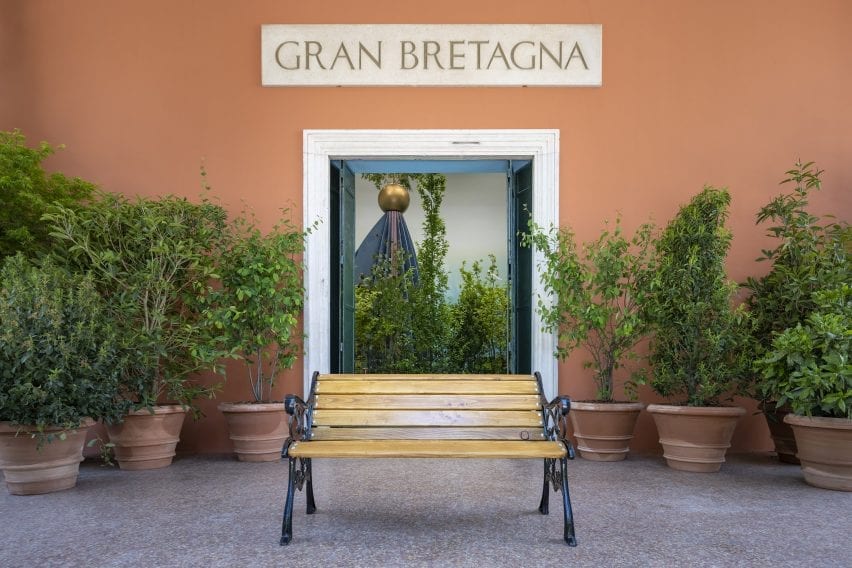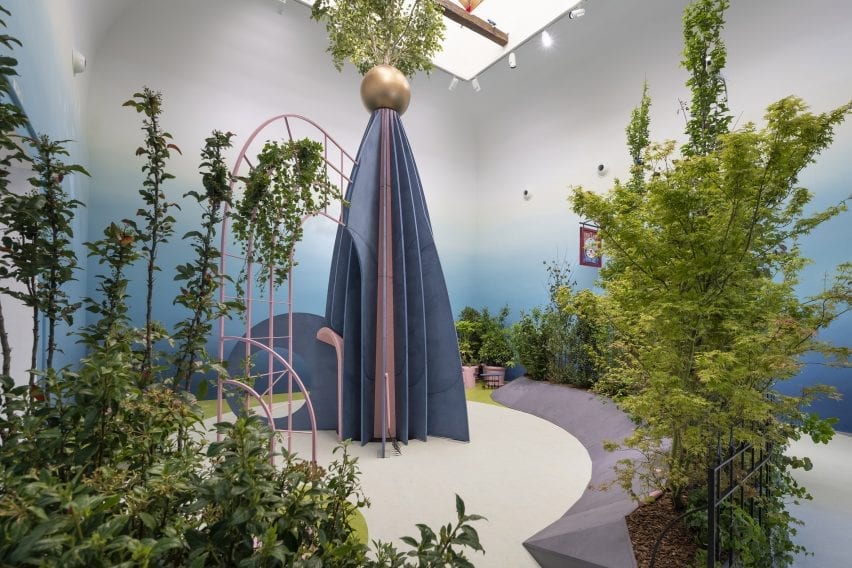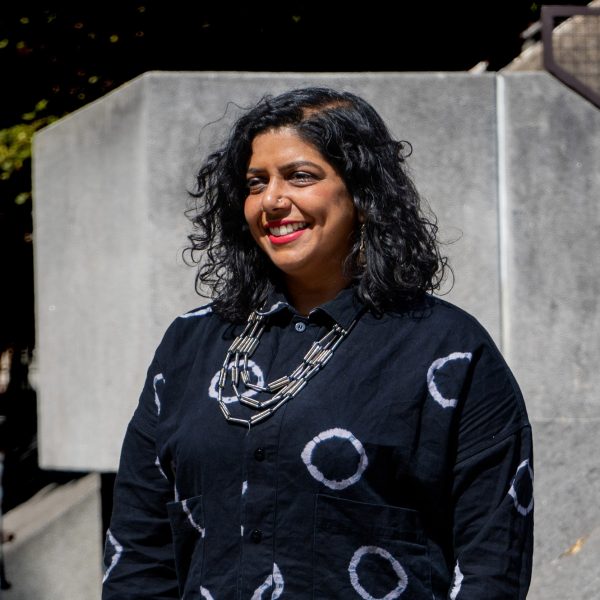Architecture curator Manijeh Verghese has been announced as the CEO of Open City, which runs the Open House London festival. In this exclusive interview, she explains her plans for the educational charity.
Verghese, who was announced as Open City’s new CEO today, wants the organisation to focus on changing cities for the better.
“Open City has this potential through their incredible reach”
“In my experience, both professionally and through my own lived experience as a South Asian woman, I’m very aware that cities are shaped by a powerful few,” she told Dezeen.
“I really think that Open City has this potential, through their incredible reach and the ways in which they engage the public, to really become a space where we can test guidance and run workshops and disseminate projects across the whole of London,” Verghese added.
“[It can] have a direct impact, therefore, on how all Londoners can shape their city.”
Trained as an architect, Verghese was keen to take on the role as she believes that the charity’s mission aligns with her own and will allow her to build on her previous roles, which have been largely focused on creating more equitable cities.

Before moving to Open City, Verghese was head of public engagement at London’s Architectural Association, where she developed its free public programme.
Understanding how public spaces can be redesigned was also the focus of the British Pavilion at the 2021 Venice Architecture Biennale, which she curated alongside architect Madeleine Kessler.
She has acted as a London Mayor Design Advocate since 2022 and believes that Open City can play a more active role in how the city as a whole develops.
“I’ve really been inspired by the work of Open City and its mission to make the city more open, accessible and equitable for a long time,” she said. “It really chimed well with what’s driven my career to date, as I’ve really been trying to engage, educate, empower people in terms of how they can shape their cities and spaces.”
“I am really keen coming into this role to build on my experience as a mayor’s design advocate at the GLA [Greater London Authority] and develop Open City, which is already an advocate organisation with the GLA, to its full potential.”
“The festival is the backbone of the whole organisation”
At the heart of the Open City organisation is the Open House London event, which sees around 800 buildings opened up to the public each year, with over 200,000 visitors attending.
Although these weekends are hugely important, Verghese wants to develop the charity’s surrounding year-long program and ensure that people understand and engage with its full offering.
“The festival is the backbone of the whole organisation – it is very much where it started and now engages around a quarter of a million people,” she explained.
“It’s what shapes the enormous reach that Open City has and it’s something that really democratises access to architecture in our built environment, so it’s definitely really important,” she added.
“But what I’m really interested in is how to better connect all the different things Open City is doing together. I think a lot of the people who experience the festival don’t always see how that connects to education programs like Accelerate and It’s My City Too! or the tours, events and podcasts that run the other 360 or so days of the year.”
Charity focused on “really empowering the public to shape their city”
She believes that Open City’s strength lies in the fact that it engages with so many members of the public, something that architects often struggle to do.
“It’s amazing that there are so many different organisations and initiatives that are providing more expansive ways to understand architecture,” she said. “But the thing that sets Open City apart is that it’s not catering to an audience of just architects.”
“It’s very much focused on really empowering the public to shape their city, be involved in their city, engage with their city – and that’s what makes it so exciting,” she continued.
“I’ve worked in and around architecture for a long time but it’s mainly been speaking to architects or related disciplines. I’m really excited to actually get to work with people who live in London and live in other cities and or even beyond cities, and get them to think about the role architecture plays in their lives.”

In what she describes as Open City’s “next chapter”, Verghese will aim to capitalise on this public engagement to make an impact on London.
“When Open City grew beyond the festival, what was really smart is that all their activities are linked together with this desire to democratise and open up access to who can be part of conversations about the city, whether that’s visiting a building or going on a tour or being part of a conversation,” she said.
“I’m keen to really think, in this next chapter, what are ways to turn those things into action? How does it start to shape policy, to inform projects, to maybe even change things at the scale of infrastructure?”
People can be “active agents to change the city”
Verghese believes that change is needed following several difficult years with the Covid-19 pandemic and cost of living crisis meaning that people feel disconnected from the city.
“It feels increasingly important that people feel like they have some agency to tackle issues and have a way to make their voices heard,” she explained.
“I think learning about the city is hugely important and necessary in order to understand where your agency, individually and collectively, lies,” she continued.
“That’s where architecture can be quite powerful in that it gives you all these tools to think about the ways we can work together to change our reality and our city. I’m really keen that we can see ourselves as active agents to change the city.”
Although Open City began in London, it now operates in around 60 cities around the world and Verghese is keen to utilise this to build connections.
“Increasingly, the world is becoming more divided,” she said. “So it feels like a really great opportunity to create connections, to connect people around the world and develop strategies to face the challenges we might have ahead of us.”
“I really see the festival as a kind of connecting device. So I think a lot of how I see my role is working with the team to think about ways this can connect together but also how we can tell a really compelling and coherent narrative to the different audiences that Open City has.”
The photos of the British Pavilion are by Cristiano Corte and the portrait of Manijeh Verghese by Elena Andreea Teleaga.
Open House London takes place across London from 14 – 22 September 2024. See Dezeen Events Guide for an up-to-date list of architecture and design events taking place around the world.

